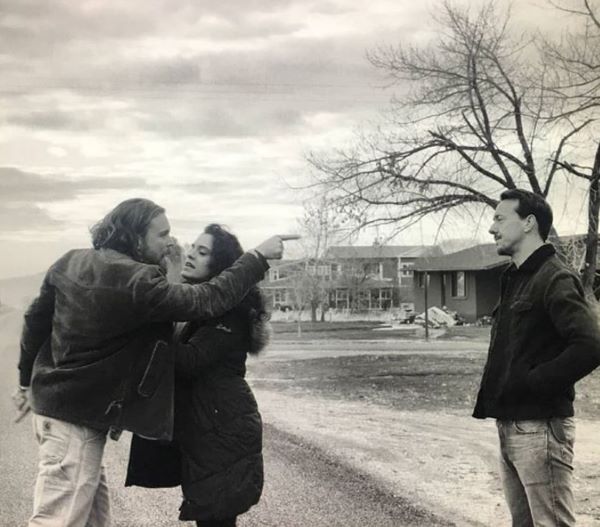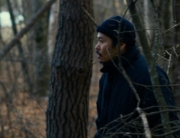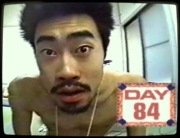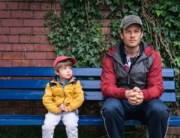

The “Chekhov’s Gun” trope suggests that every object in a story requires a purpose, its name deriving from the playwright’s idea of a gun that, if shown, must eventually go off. The tension of that weapon lies in seeing who will use it and why. The Killing of Two Lovers establishes this tension from its opening scene, with thirtysomething David (Clayne Crawford) aiming a revolver over a sleeping woman and her partner but who, distracted by noises in the house, opts to flee out a window instead. It’s an immediate indicator of the man’s insecurities and anger, both of which drive his arc from start to finish.
After David’s escape, we get a bit more information about his life. He lives with his dad in a small rural community in Utah, works manual labor for the neighbors, and is currently separated from his wife, Nikki (Sepideh Moafi). That last detail is revealed when David drives back to the house, where he unsuspectingly held the gun, to see their kids, of whom Nikki has custody.
They have three young boys and a high schooler, Jesse (Avery Pizzuto), who resents her father for not doing more to get Nikki back, despite him firmly stating that they’ve agreed to see other people during this tumultuous period. “You need to fight,” she scolds him before going to school, but David’s struggle to admit that this relationship is over degrades him badly. That Nikki’s new partner, Derek (Chris Coy), seems like a pretty decent guy doesn’t matter: his presence is enough to make David feel like a failed partner and lover.
Simplicity is key to why The Killing of Two Lovers works, both in its premise and cinematography. Instead of extensive cuts or transitions, director/writer Robert Machoian keeps nearly every shot in a 4:3 square aspect ratio and limits his camera’s movement to still, continuous takes and tracking shots of characters running, arguing, and riding around in David’s truck. It’s simultaneously intimate and isolating, locking the viewer into these fixed positions and forcing us to endure every feud with an unflinching gaze. We don’t have the luxury of being able to observe other perspectives, making every scene an extension of David’s detached mindset.
The question of whether David is a “good” person is debatable. On one hand, he clearly wants to be around his kids, despite no longer living with them. Yet we’re introduced to him as someone with murder on the mind, his aggression gradually increasing as things fail to go his way. At a base level, he feels adrift and even dethroned by someone who, even if the kids haven’t warmed up to Derek yet, is still sleeping with his wife. It’s not just the gun that makes him a loose cannon. It’s his innate desperation to be a part of the family again, to the point of popping by at the most random of moments to regain some semblance of that life, something that Nikki finds deeply concerning.
Crawford’s performance helps to ensure that David never feels like a total ass. He still is one, but Crawford gives off a sense of weariness that underlines how overwhelmed David is by the negative fallout of this separation on himself and his kids. That he’s sympathetic makes the tension all the more concerning. Every emotional setback offers another possibility that David could snap and escalate a situation toward a violent outcome. Yet, in his mind, embracing such an option feels like a perverse inevitability for reclaiming his pride, driven more by ego than anything else.
What The Killing of Two Lovers’ plot lacks in scope, it makes up for in unique camerawork and small-scale drama. You might not know everything about why David’s marriage collapsed, but there’s enough small moments to highlight what could have been and why he’s desperate to put what’s left of it back together. For David, what he could do with a gun is far less disheartening that who he is without family, a bullet he doesn’t quite know how to dodge.






Leave A Comment